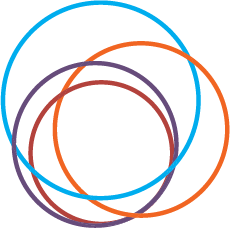1969. DARPA, the Defense Advanced Research Projects Agency, a branch of the Defense Department, formed the first computer network. It was formed in response to the 1957 Sputnik launch by the Russians. A computer scientist named Leonard Kleinrock led a group of scientists in that year to develop what later became known as the Internet.
Computers of that era were big, expensive, and inefficient. They needed to talk to each other. The early vision of the Kleinrock group was a machine-to-machine or person-to-machine network. They totally missed the bigger picture that what they had created was a network of people communicating with each other.
When that became evident, well, you know what happened. Today we have a single global network connected electronically. Connected electronically . . . what has that done to the human connection?
In the early 1960s we communicated with neighbors from the front porch of our homes. Moms conversed over the clothes line, and families gathered together at the dining room table to catch up on the day’s activities.
With the birth of the Internet, those human connections gradually gave way to email and texting. and today to Zoom and Skype and FaceTime. The human connection of handshakes and hugs and kisses on the cheek are today in fact gone in the face of a global pandemic called the Coronavirus.
The world has become cold and our communication continues to devolve into coarse bursts behind a computer screen. We are losing our humanity. Mr. Kleinrock and his group of scientists gave us a good thing with many advantages. Some among us have capitalized on its disadvantages and are using it to harm our society.
How can we recover our humanity? Outfluence believes that the best place to begin is with high school students. By the time teenagers enter high school they will have had sufficient life experiences to be able to comprehend our programs that focus on communication, personal growth, inspired performance and citizenship. Ideally, an in-school program of one-hour-per-week throughout high school will establish within the students a lifetime of values and skills that will contribute to a society steeped in decency and kindness.
Several generations of Outfluence-trained young men and women will lead us out of its current direction toward destruction and into a new age of enlightenment.
Outfluence is reclaiming what it means to be human, to be connected to others in meaningful ways, and to contribute meaningfully to our world and our future. We do this by teaching thoughtful intentionality, relational awareness, effective communication, and personal development through interactive, dynamic training for youth and adults, families and organizations. Contact us at info@outfluence.com to schedule an Outfluence speaker to address your business or organization.
